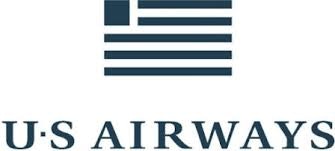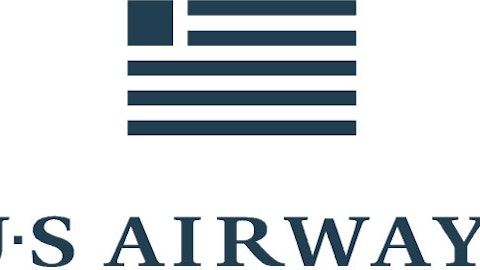So much for a quick and easy airline merger.
On Aug. 13, the Department of Justice surprisingly announced that it would be investigating the merger between US Airways Group, Inc. (NYSE:LCC) and American Airlines. The DOJ cited concerns that the deal could lead to anti-competitiveness in the industry. The news sent struggling US Airways Group, Inc. (NYSE:LCC)’ stock plunging 13% that day.
According to the DOJ’s lawsuit, the merger would leave 86% of all American air travel in the hands of just four companies , including United Continental Holdings Inc (NYSE:UAL), Delta Air Lines, Inc. (NYSE:DAL), and Southwest Airlines. However, accounting firm PricewaterhouseCoopers said that previously allowed mergers, of which there are several, have not increased prices and in fact have improved air travel for many according to a recent report analyzing domestic airfares and airline competition over the last decade. Despite this vote of confidence, though, what was a near-sure merger has left doubts in the minds of US Airways Group, Inc. (NYSE:LCC) investors and raised new concerns of government interference in airline mergers.

Mergers tend to be good things
Since 2001, the airline industry has grappled with both consolidation and competition. As air travel increased across the country, and new security fees were levied post 9/11, smaller regional airlines found it more difficult to compete with established heavyweights. The mergers condensed 10 of the biggest airlines into five; if the US Airways Group, Inc. (NYSE:LCC)/American merger goes through, that number will shrink to four.
Mergers have been very good for profits, though, resulting in long-term success for the big five companies. In 2001, American Airlines merged with TWA, which saved American Airlines from collapse and reasserted it as a competitive airline. This came after a couple AA flights were used for the 9/11 attacks, undoubtedly shaking consumer confidence. Four years later, AA reported its first quarterly profit since the merger, but workforce problems and credit trouble sent the company back into decline.
US Airways also had a big merger in 2005 with America West, after emerging from a second bankruptcy filing and labor cuts in 2004. This merger helped US Airways Group, Inc. (NYSE:LCC) get back on solid footing, and it even tried to get its hands-on Delta Air Lines, Inc. (NYSE:DAL) in what was considered a “hostile takeover” bid. The plan fell through after Delta Air Lines, Inc. (NYSE:DAL) shareholders refused to agree to it.
US Airways Group, Inc. (NYSE:LCC)’ share price tripled after the America West merger , from $20 to $62 a share. But it collapsed like other airline companies during the 2008 recession, down to $13 a share, before news of the merger with AA sent the stock up 33% to $17. Meanwhile, after saying no to US Airways’ $10 billion takeover bid, Delta Air Lines, Inc. (NYSE:DAL) acquired Northwest Airlines in 2009, immediately doubling its stock price following the deal. It’s been up 278% since the merger.
US/American deal not a game changer
The Justice Department’s main complaint comes from the fact that the deal would create the country’s largest airline, decreasing competition and potentially increasing airfare prices for customers. A US/American merger would create a company with a $4.2 billion market cap, $3.2 billion EBITDA, and $35 billion in assets. While those are substantial numbers, none would make the company the largest among the other three competitors:
| Airline | Market Cap | Assets (2012 annual report) | EBITDA (ttm) |
|---|---|---|---|
| Delta | $16.62 billion | $45.77 billion | $4.71 billion |
| Southwest | $9.51 billion | $19.38 billion | $1.71 billion |
| United | $10.94 billion | $37.47 billion | $2.85 billion |
| US/American | $4.2 billion | $35.1 billion | $3.2 billion |
Source: Yahoo! Finance, August 2013.
There isn’t much to point to a severe lack of competition — at least, not in comparison to other mergers. In fact, given the small market share that US Airways and American have, it may not be that noticeable to passengers looking for competitive rates.
But the deal would make a big difference for investors, transforming two companies with a history of financial trouble into one business that is better able to compete with companies like Delta and United Continental Holdings Inc (NYSE:UAL), the two biggest players.
Delta Air Lines, Inc. (NYSE:DAL) reports the industry’s strongest net profit margins with 4.75%, and trades with a 6.5 forward P/E, with a cash flow of $2.48 billion. Despite such a low profit margin, it is actually very good within the context of an airline industry that routinely struggles to turn a profit, much less have a strong cash flow.
United Continental Holdings Inc (NYSE:UAL) isn’t a slouch, either, with the same forward P/E. But it isn’t running a profit, with a negative 1.5% profit margin and a low $935 million cash flow. In contrast, US Airways has maintained a slightly higher $1.02 billion cash flow, thanks to lower liabilities and costs. This may not seem that much right now, but since US Airways Group, Inc. (NYSE:LCC) has reduced those costs, its profit margins and cash flow will likely improve further, putting the company in a stronger forward-looking position with investors.
The status of Delta Air Lines, Inc. (NYSE:DAL) and United as the two strongest companies shows that a US/American merger would not be a game-changer, despite being the largest airline in the country. The competition and push to cut costs is still there, and will still benefit customers in the long run.
The bottom line
The DOJ lawsuit, given the overstated influence of a US/American merger, will hurt investors. The entire industry took a hit when the news broke, with Delta down 7% when it was reported, showing there is a demand for a new competitive airline.
Delta and United are by far the best bets still, but Delta is the stronger of the two. US Airways will need to take a wait-and-see approach once the lawsuit clears up.
It’s a shame that a frivolous lawsuit is harming a relatively small merger, and it breaks nearly a decade of precedent. But until this suit gets settled, it’ll probably prove painful for shareholders.
The article DOJ Airline Lawsuit Is Much Ado About Nothing originally appeared on Fool.com and is written by John McKenna.
John McKenna has no position in any stocks mentioned. The Motley Fool has no position in any of the stocks mentioned.
Copyright © 1995 – 2013 The Motley Fool, LLC. All rights reserved. The Motley Fool has a disclosure policy.




